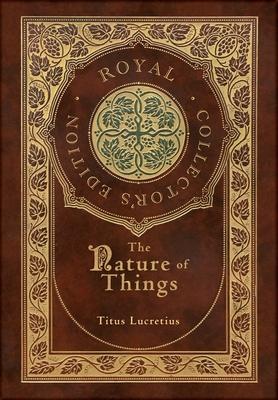The Nature of Things transmits the ideas of Epicureanism, which includes atomism and cosmology. Lucretius presents the principles of atomism, the nature of the mind and soul, explanations of sensation and thought, the development of the world and its phenomena, and explains a variety of celestial and terrestrial phenomena. The universe described in the poem operates according to these physical principles, guided by fortuna, "chance," and not the divine intervention of the traditional Roman deities.
Lucretius' work was an attempt to show, through poetry, that everything in nature can be explained by natural laws, without the need for the intervention of divine beings. Lucretius identifies the supernatural with the notion that the deities created our world or interfere with its operations in some way. He argues against fear of such deities by demonstrating, through observations and arguments, that the operations of the world can be accounted for in terms of natural phenomena. These phenomena are the result of regular, but purposeless motions and interactions of tiny atoms in empty space.
This case laminate collector's edition includes a Victorian inspired dust-jacket.
